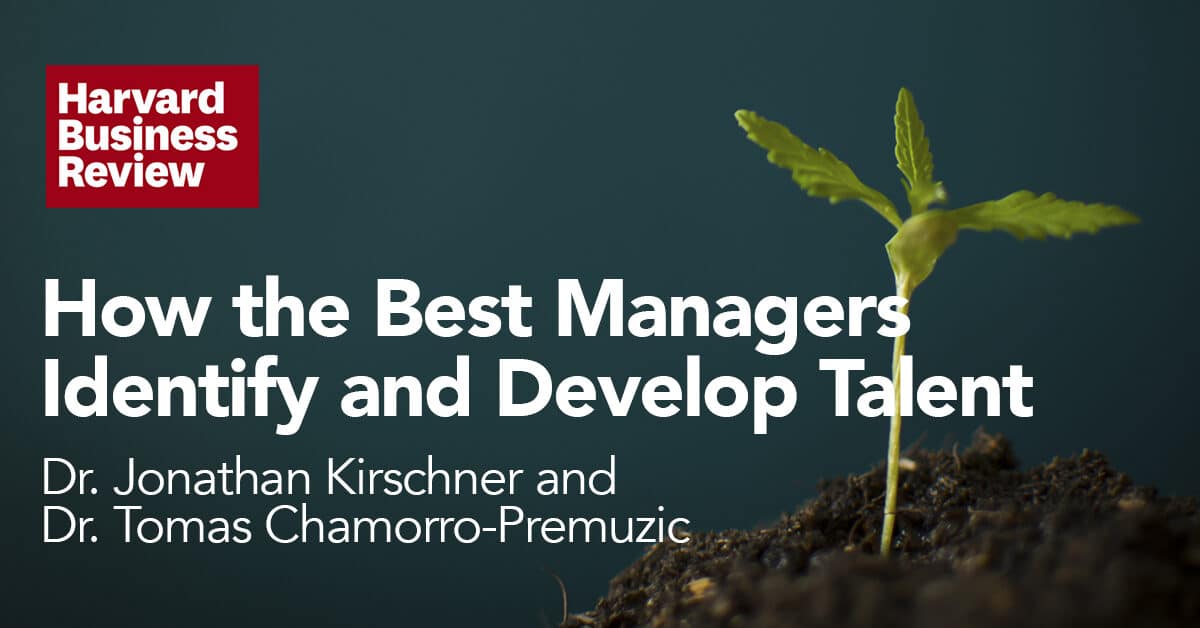7 steps to become a better talent manager
In our survey of organizational leaders and elite executive coaches for our annual trends report, Leadership 2020, a huge number of respondents told us that talent management would be a key challenge for leaders in the new year.
Unemployment is at historic lows, creating unprecedented competitiveness in the recruiting landscape, which makes attracting and retaining talented employees and developing them to meet the future needs of the organization, increasingly challenging.
To meet this challenge, managers need to become better talent managers. To become more adept at identifying and meeting their organizations’ talent needs.
This was the subject of “How the Best Managers Identify and Develop Talent,” an article written for the Harvard Business Review by AIIR CEO Dr. Jonathan Kirchner and renowned business psychologist Dr. Tomas Chamorro-Premuzic. The article outlines seven science-based recommendations to help you develop your talent management skills.
1. Think ahead.
While it’s common to ask prospective employees their five-year career aspirations, few managers ask themselves what their five-year talent strategy is. Rather than focusing hiring on what you need now, look for candidates with skills that align with your long-term strategy.
2. Focus talent management on the right traits.
Managers focus too much on candidates’ resumes, hard skills, and technical expertise. Most of today’s jobs will change significantly over the next decade, as will the hard skills and expertise necessary to do them. Soft skills such as emotional intelligence, drive, and learnability, on the other hand, are important for success in every job at every level.
3. Don’t go outside when you can stay inside.
Firms often hire externally when they could source better talent from within. Scientific reviews show that external hires will take longer to adapt and have higher rates of voluntary and involuntary exits — yet, they are generally paid more than internal candidates.
4. Think inclusively.
Most managers have a tendency to hire people who remind them of themselves. This tendency harms diversity and inhibits team performance. The only way to think about talent inclusively is to embrace people who are different from you and others already on your team.
5. Embrace data-driven talent management.
Hiring managers need to test the outcomes of their decisions. Outline clear performance goals that can be evaluated by others, and see whether your view of new hires’ performance aligns with what others think and see.
6. Think plural rather than singular.
We live in a world that often glorifies individualism. But almost everything of value has been the result of a collective human effort. When you think about your talent pipeline, focus less on individuals and more on the configuration of your team.
7. Make people better.
No matter how skilled your employees may be, you still need to help them grow. Being a great manager means being a great coach. This means mastering the art of giving critical feedback, including the ability to have difficult conversations and address poor performance.
Are You Ready To Shape A Better Future Together?
Partner with AIIR to empower your leaders and ascend into the future.

